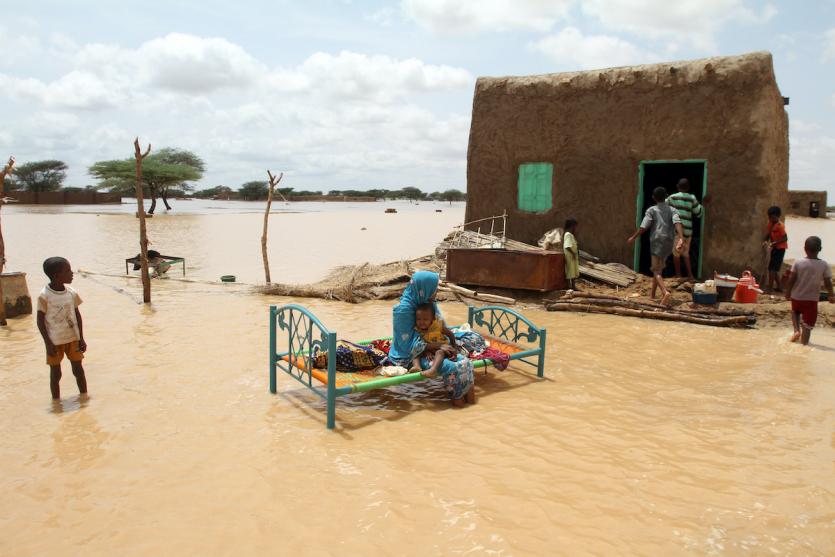A Sudanese woman sits with her child next to her house in a flooded street on the outskirts of the capital Khartoum. Photo:Getty
Half a million displaced after severe flooding in Sudan
By Patryk Krych | The World Daily | SEPTEMBER 19th 2020
The White Nile and Blue Nile are two extremely important rivers in Sudan, serving as its lifeblood. Recently however, they’ve become a source of the country’s terror and woe, as at least 100 have been killed, and 500,000 have been displaced following sever floods and heavy rains.
The floods have been an issue for the country for months now, with 115 people having been verified as dead since July. The flash-floods broke records, and even now, the residents of the country are living under constant threat of further flooding and displacement as heavy rains continue. Sudan is currently in its rainy season, lasting from June to October time, so residents expect the rains to continue until then.
“We tried to build fences to protect our home but the winds were too strong, so we decided to salvage what we could and fled,” Hanan Shariff, one of the thousands of flood victims, told Al Jazeera. She’s been living in a makeshift camp in Sinjah since the loss of her village to the floods, and has been struggling since.
This is the unfortunate reality of the 500,000 people who’ve lost their homes due to the natural disaster. Emergency food assistance, supplied by the United Nations, had to be scaled up. The worst hit area in the country was Khartoum, having been inundated by waters from both the Nile rivers. Aid was slow to arrive to the area, forcing many to take shelter in schools and government buildings.
Humanitarian responses were difficult to deploy, due to the many damages caused to bridges and roads. The Jesuit Refugee Service (JRS), along with many other humanitarian aid services, reported many similar damages in their offices and warehouses. In many cases, crops, livestock, and life assets have succumb to flood damages themselves, making food security difficult to attain, and recovery nearly impossible.
The flooding situation could have been much worse than it was, some say, due to a recently built dam in Ethiopia, where the Blue Nile river originates. Rains have been particularly heavy in the Ethiopian highlands. If not for the dam, many more may have been drowned or displaced.
A three-month state of emergency was declared in early September by the Sudanese government, specifically its Humanitarian Aid Commission.






